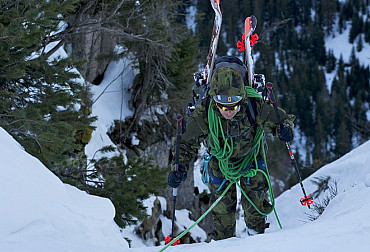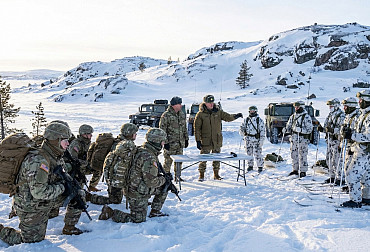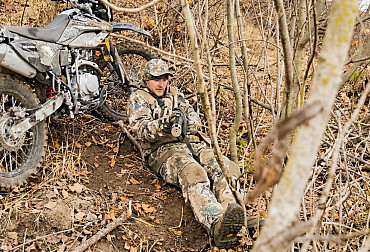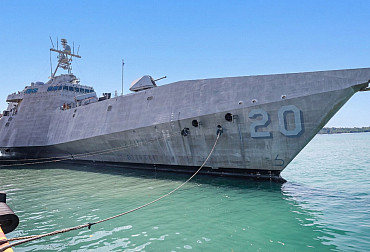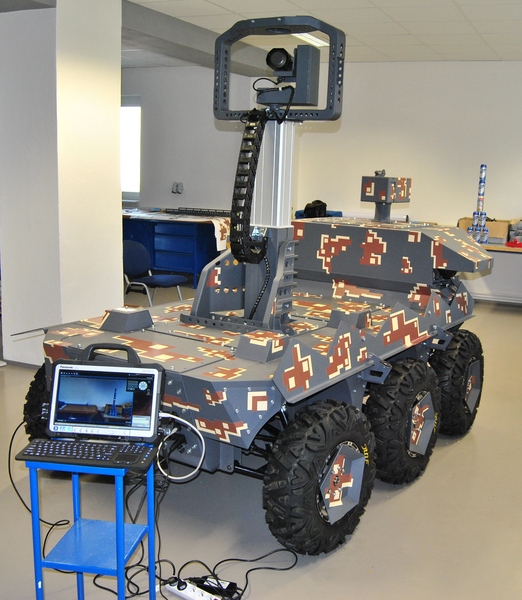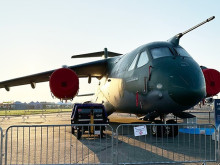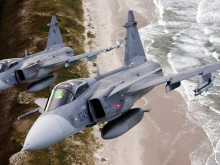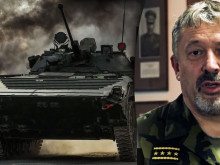Jan Mazal: It is difficult to imagine the future battlefield without robotic systems
Colonel Jan Mazal, who is currently the head of the Department of Military Robotics at the Faculty of Military Technology of the University of Defense, is a graduate of the Faculty of Military Systems Management at the Vyškov Military University of the Ground Forces. In 2003, he completed the Academic Course in Military Intelligence, Fort Huachuca, Arizona, USA. Since 2005 he has been doctor in the Theory of State Defense field of study. In the past, he worked at the Centers of Excellence (COEs) in Rome as the head of the Department for Doctrines of Education and Training, then at the University of Defense in Brno as a senior researcher at the Department of Military Management and Tactics and deputy head of the Department of Tactics. He specializes in automation and robotics in the operational-tactical domain, C4ISTAR systems, military robotics and artificial intelligence, and computer support of decision-making processes in the military at all levels of command. He is the author and co-author of more than 80 professional publications, the solver of more than 15 scientific projects, the author of a number of functional samples, application software, is an invited member and author of many lectures in the field of military robotics at international workshops and symposia and is also the organizer international conferences dealing with the issues of autonomous systems, robotics, modeling and simulation and the like (eg MESAS-Modeling and Simulation for Autonomous Systems, MARS-Multidomain Advanced Robotic Systems). In his military practice, he held command and staff positions at the battalion level. In the past, he has also served in the foreign missions EUFOR (Bosnia and Herzegovina 2006) and ISAF (Afghanistan 2010). We are glad that the colonel reserved time for us and offered us the following interview.
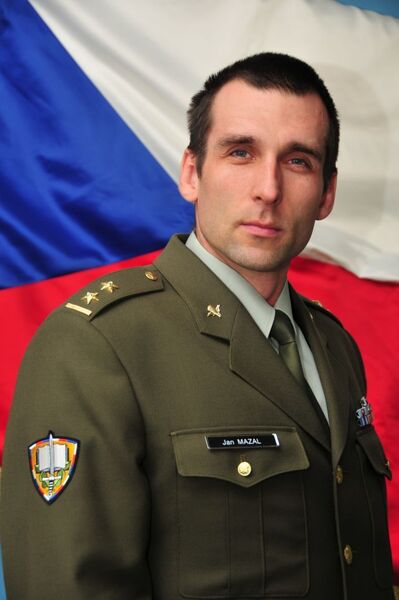
Picture: Head of the Department of Military Robotics Col. doc. Ing. Jan MAZAL, Ph.D. | Ministry of Defense of the Czech Republic
Colonel, you are the head of the Department of Military Robotics at the University of Defense. Who is this field for?
Hello, due to the fact that we are a new department, the study specialization Military Robotics is currently in preparation and we expect its accreditation in the coming months. The specialization is generally intended for all those who are close to robotics, mechatronics, automation, artificial intelligence and the like. Given that it is military robotics, we are of course focusing on the context of the applicability of these areas in the Army, which is currently a significant trend in all advanced armies of the world and it is difficult to imagine the future battlefield without robotic systems.
What are the demands placed on applicants within the admission procedure? Can it be said what is the overall success of the applicants in the admission procedure to the Department of Military Robotics?
Requirements for applicants will be the same as for other applicants at the Faculty of Military Technology applying for electrical or mechanical engineering, ie nothing unmanageable. You can find the current requirements on our UNOB.cz website and I would like to encourage all potential candidates to come and try it. Due to the delays in the processes related to the accreditation procedure, caused by the situation around the covid-19 pandemic, teaching in the given specialization will probably not start until 2022.
On your website, you state that, among other things, you focus on monitoring development trends, collecting and analyzing information about robotic and autonomous systems and their technologies. In your opinion, who is the imaginary driver of robotic systems in the world, or which countries belong to the top in this area?
So it should come as no surprise that the US military, especially the DARPA agency, which is giving the whole area more significant dynamism, is at the imaginary peak in this respect. However, other countries such as Israel (where defense technology has traditionally been at the forefront), Turkey, which has made tremendous progress in the region over the past decade, do not want to be left behind, as do China and Russia, where technological progress in recent years has forced NATO to rethink its importance of advanced technologies and set the focus of development efforts on artificial intelligence, autonomous systems, automated decision support systems and the like. Otherwise, the development of military robotics in European countries in the last decade has been influenced mainly by defense savings and a relatively good security situation, which has not forced significant steps in this regard. However, it can be seen that countries such as Germany, France, Great Britain, Italy and others are trying to catch up with a certain deficit in this regard, which is also seconded by support from the EDA (European Defense Agency). Otherwise, for Eastern European countries, Estonia and Ukraine, for example, are very active in the field of military robotics.
And what about your own development? You participated, for example, in the development of the Taros UGV. Has this vehicle (or any other systen you have been involved in) had any success in the world?
Not commercial yet, but of course our systems have attracted considerable attention. Here I would just briefly mention that at the University of Defense, we started with the UGV systems weighing more than 300 kg in 2004, when this area was not the subject of as intense interest of advanced armies as it is today. We have been learning for ourselves in this regard for several years, constructing a series of technological demonstrators, such as: UGV for autonomous navigation, UGV for automatic targeting, UGV for automated monitoring of radiation contamination and more. Until then, only at the national level. Due to the technical possibilities that we had during the first five years at the University of Defense, we were able to solve only the conversion of standard ATVs to UGV systems, which in 2009 proved to be insufficient in terms of operational requirements, and therefore we established cooperation with VOP 025/026 (today VOP CZ, sp), which at that time identified the need to engage in the development of UGV systems, as this fit into its strategic production portfolio. The TAROS 1 and 2 systems have come up from our cooperation, and they have also received considerable attention at the international level.
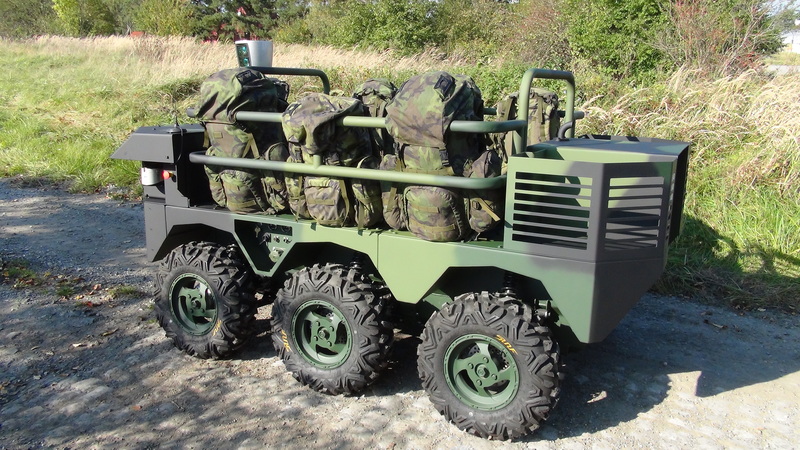
These were primarily exhibitions (IDET, IDEB, Future Forces Forum) and demonstrations at meetings of NATO working groups, where there was of course interest in these systems, but the armies that used these systems or experimented with them (especially the US and Israel), of course, had their own development programs, and for less advanced armies, the UGV area above 2 tons was too advanced. In general, foreign acquisition was of course a problem with this new technology, especially if the systems are not implemented by the Czech Arny. But we has a success in 2020 (with the UGV-Pz and the SOM-6) and according to information from the GTC CZ serious foreign applicants are already appearing.
 Picture: UGV-Pz and control set for two operators and commanders. | VTÚ / CC BY-NC-ND
Picture: UGV-Pz and control set for two operators and commanders. | VTÚ / CC BY-NC-ND
Can you say what is most important to you at the moment? Have great pros in the team, or have enough money?
Of course, a combination of both components is ideal, but in this respect, the staff is always a priority for us. If you have capable people, you will somehow get money in our environment. These possibilities are currently very wide, from grant projects, various scientific competitions, research cooperation, to contract research and the like. And this fact usually applies in general.
When we look at the world's current battlefields, including the recent Nagorno-Karabakh conflict, it is clear that more and more space is being devoted to drones. In your opinion, what role will the ownership and control of this technology play in the future and in what condition is the Czech Army in relation to the above?
This is basically no big surprise, serious discussions about the fact that robots will dominate the battlefield of the future appeared in the 70s of the last century, and at the beginning of this millennium this assumption began to grow into certainty. The only question was "when" will the intersection of the imaginary maturity of the technology, its economic profitability and especially the operational needs, which will increase at the moment when there is no other alternative.
At present, we are relatively in the beginning in this respect (meaning the combat use of highly intelligent machines), but current demonstrators and simulations show that in the future operating environment, one will not be able to compete with these systems. This fact is already intuitively evident from the length of the reaction time, which is 200-250 milliseconds in humans, while robotic systems can react in the order of milliseconds, which is a major advantage that can not be compensated for by human abilities (e.g. for example by training, numerical superiority and the like).
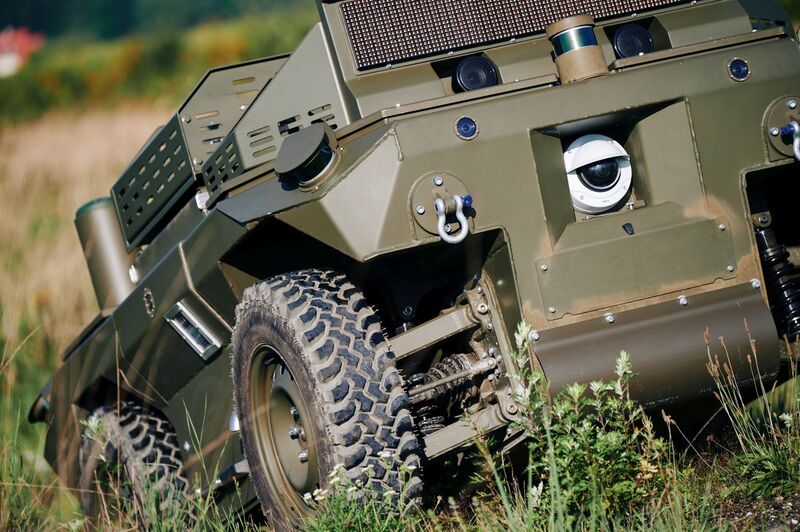 Picture: Serious discussions that robots will dominate the battlefield of the future appeared in the 1970s, and at the beginning of this millennium this assumption began to grow into certainty. | Ministry of Defense of the Czech Republic
Picture: Serious discussions that robots will dominate the battlefield of the future appeared in the 1970s, and at the beginning of this millennium this assumption began to grow into certainty. | Ministry of Defense of the Czech Republic
It is therefore an absolutely key area for the development of armies, which will be a decisive factor in future armed conflicts, and the developed countries of the world are well aware of this, which is why we are witnessing a kind of technological rivalry in this field. Otherwise, the situation in the Czech Army, thanks to the accumulated internal debt and many other problems, has not yet allowed to achieve significant dynamics in the area, however, in recent years there is an evident shift (establishment of a battalion of unmanned systems, introduction of UGV-Pz / SOM-6, wide discussion of advanced technologies, support for artificial intelligence, etc.), which I fully believe will accelerate and reach the level of advanced Western armies. The Czech Republic has the potential to be a major world player in the given area, but without the support of the state it will probably not be possible to reach this milestone.
In your opinion, is it in the power of any research / technical institute in the Czech Republic to ensure the production of drones that can also carry ammunition?
Yes, of course, there is no doubt about that. The production of drones carrying ammunition is not an unsolvable problem, it is just a matter of priorities, investment and concentration of effort. Of course, the question is in what number and at what technical level, but it is of course solvable within one technical institute. Examples can be seen in other countries such as Israel and Turkey. In the future, a significant increase in the need and use of these machines can be expected compared to their conventional counterparts. Most arms companies will therefore have to reorient themselves to this area anyway.
If we look at the civilian sphere, for example at the autonomous control of Tesla cars, various pedestrian detections, etc., what is the connection of civilian technologies to military research? E.g. The GPS system was originally intended for military use only and now serves the civilian sector around the world.
This connection is no longer as strong as during the Cold War, when the so-called doctrine preceded technological possibilities, but of course it has a certain effect. For example, the US defense agency DARPA is constantly and significantly accelerating technological progress in many areas, and it can be estimated that the development of autonomous vehicles, thanks to a series of Grand Challenge competitions, has accelerated worldwide by at least 10-20 years.
Colonel, does the current defense budget have any effect on your department?
Probably not at the moment, but we perceive a positive all-army shift towards technological approaches and the announced tendency to develop the field of robotics and artificial intelligence. Here we assume that the given trend will increase the dynamics of solving specific scientific research projects, in which we would of course like to participate as a department. The key is what percentage of the chargeable budget will be set aside for research and development (the current approx. 0.5 percent seems insufficient in the context of future needs and scope) and how much of the given volume will physically go to advanced technologies.
Picture: TAROS 6x6 | Ministry of Defense of the Czech Republic
Is it possible to say where the world will be in the field of autonomous systems in ten years and where do you think the Czech Republic will be placed?
A difficult question, but if we look at the progress in this area, for example in the civilian sector, it can be assumed that in 10 years the progress of automation of driving in vehicles will reach full autonomy. Although a massive degree of automation can also be expected in military applications, it will probably take longer to achieve the operational deployment of fully autonomous systems. In this distributed-global sense, the world is relatively far in the field of autonomy, and many real applications are near their completion at the moment.
The imaginary "holy grail" of the level of automation in the civil sector is to achieve full autonomy of vehicles, especially land vehicles, which is slowly being fulfilled. To achieve an adequate level of reliability of these systems Innovative approaches are being sought for the prediction of traffic situations (the role of the human factor), the adaptation of the transport infrastructure for autonomous vehicles and the introduction of an overview system of all participants in the transport network, including pedestrians, for rapid prediction of potential collision situations. The components of the technology for the implementation of the above are basically already available and all that remains is to integrate and so-called "fine-tune".
Regarding air transport and the massive deployment of autonomous Unmanned Aerial Vehicles (drones), the main obstacle is not so much technology as the legislative framework, the regulation of which has been widely discussed over the last few years. In any case, it can be assumed that within ten years, even this will be managed to a certain initial state.
In the operating environment, the situation is a bit more complicated, as the demands on these systems are much higher and it can also be assumed that they will move in a highly disturbed electromagnetic environment and will not be able to rely on some sensors and connection subsystems. It may take more than two decades to resolve all the key issues associated with this and necessary to launch a new generation of so-called "autonomous wars", depending on the intensity of the R&D effort, where the deteriorating security situation can be expected to keep pace. In any case, a significant shift in the defense sector can be expected in 10 years.
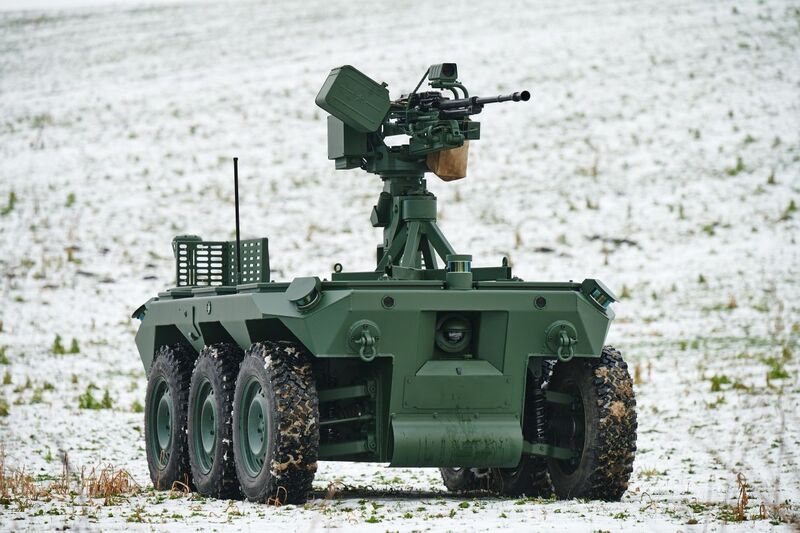 Picture: In any case, the Czech Republic certainly has the potential, based on quality experts, and our republic also does not suffer from such prejudices and fears in connection with robotization as other countries, for example. | Ministry of Defense of the Czech Republic
Picture: In any case, the Czech Republic certainly has the potential, based on quality experts, and our republic also does not suffer from such prejudices and fears in connection with robotization as other countries, for example. | Ministry of Defense of the Czech Republic
And where will the Czech Republic be placed? I would like us to be at the forefront of development in this regard, as this is a strategically absolutely key segment. However, for the time being, there is no indication that we will accelerate significantly in this regard. In any case, the Czech Republic certainly has the potential, based on quality experts, and our republic also does not suffer from such prejudices and fears in connection with robotization as other countries, for example.
We can only hope that the Czech Republic will not be left behind in this area, and I am convinced that our scientific and academic institutions, together with industry, will do everything possible and impossible so that we do not lag behind in this field. Cooperation on the further development of UGV between UNOB and industry (VOP CZ, s.p.) continues, however, I believe that it will be necessary to significantly systematically support the acceleration of further development activities.











